Overview: Blockchain, Crypto, NFTs etc
A long overdue overview, just getting started. Stimulus: the idea of managing the MyHub data union and associated services using a DAO and utility token. Currently I'm curating a few articles every day, then summarising the most interesting ones here every week (cf progressive summarisation).
Related ideas not in this Overview: decentralised, p2p.
Best primers
Bitcoin/Blockchain
How to explain Bitcoin to your grandmother :
- banks are simply "intermediaries that 'keep score' of e-money" by maintaining a time-stamped ledger.
- "we have to trust in the banking system in order to trust in the money." Bitcoin is a decentralised intermediary that we don't have to trust: people can't copy/paste bitcoin.
- Everyone has a Public Key, linked to bitcoins. To send someone bitcoins, I broadcast to the Bitcoin network: "I am Public Key M; I wish to transfer X Bitcoin to Public Key N. Please check and record it on the ledger",
- that ledger is "the Blockchain... a computer file that gets constantly updated, and it is held on the computers of everyone in the Bitcoin network... built and maintained by ... Miners", who (competitively) earn bitcoins in return for validating and recording transactions. So Bitcoin is "a currency that grows in the process of people trying to maintain its integrity".
- Recording to the blockchain "makes the transaction real... coins [exist] in the historical record of the blockchain... a collaboratively-built knowledge bank ... All I have on my computer is a public key which says that I am the rightful owner to a part of that history" - so dont lose access to your Key!
DAOs
" a new kind of leaderless crypto-club... group chats with bank accounts... Web3 kids trying to tear down the old social hierarchy, only to replace it with a new, tokenized one where they were on top" - Crypto Is Cool. Now Get on the Yacht
Ethereum is a platform and a programming language ... to build and publish next-generation distributed applications.... Ethereum can be used to codify, decentralize, secure and trade just about anything... Ethereum borrows the concept of decentralized consensus that makes bitcoin so resilient, yet makes it trivial to build on its foundation
- Introducing ethereum
Based on charters taking the form of code on a peer-to-peer network, these are entities that could automate many of the tasks of a conventional organization with varying levels of human input.
- Code your own utopia: Meet Ethereum, bitcoin’s most ambitious successor
remove management from the equation ... encode the mission statement into code... an inviolable contract that generates revenue, pays people to perform some function, and finds hardware for itself to run on
- Bootstrapping A Decentralized Autonomous Corporation: Part I
"there’s no shortage of startups, projects, and developers trying to apply the blockchain concept to everything... because it gives the tech industry another bite at a long-coveted apple: decentralization."
- Can an Arcane Crypto Ledger Replace Uber, Spotify and AirBnB?
Identity
Blockchain + private key cryptography allow for “self-sovereignly”: full possession of digital assets without having to trust a third party. Wallets can be multi-signature: have as owners multiple keys (incl. other wallets), & require multiple key signatures to confirm a transaction. They allow cooperatives to hold resources in common, and liquid democracy (through delegation). Multi-sig accounts = operating system for DAOs, presuppose groups or identity collections as their primary unit -> composable identity. Web 3.0 accounts will underpin #metaverse interoperability: provide wallets, identity, login functions and in-game inventories (holding assets, including identities), complete with cross-platform narratives & reputations. Inventories can be cooperatively shared - Inventories, Not Identities
AI/DAOs
blockchains encourage data sharing among traditional silos, if there is enough up-front benefit ... AI with blockchains unlock the possibility for AI DAOs - an AI that owns itself... can accumulate wealth, that you can’t shut off... an AGI-style control system running on a decentralized processing & storage substrate. Its feedback loop continues on its own, taking inputs, updating its state, actuating outputs, with the resources to do so continually... AI gets its missing link: resources. DAO gets its missing link: autonomous decision-making.
- Blockchains for Artificial Intelligence
NFTs
"Scarcity — the quality that gives offline art its value — was hard to replicate online. An NFT is a digital collectible item stamped with a unique bit of code that serves as a permanent record of its authenticity and is stored on a blockchain... can be bought and sold ... can’t be deleted or counterfeited. That makes it useful for artists... to create limited edition digital goods... Creators can even attach a royalty agreement to their NFTs, entitling them to a cut of the profits every time their assets are resold".
- Buy This Column on the Blockchain!
Longer history: The Untold Story of the NFT Boom
Application examples
Media/journalism/publishing/art
Media: early resources - some quotes:
Brave, the blockchain-based browser initiative that raised $35 million in an ICO earlier this year, is making its first major move to build an ecosystem that rewards publishers in a new kind of way.
- Blockchain browser Brave makes push to reward content makers
Po.et is a shared, open-source universal ledger designed to track ownership, attribution and the marketplace flow of the world’s creative assets
- The Next Platform for Media and Makers (seems dead)
A new report ... concludes that “protecting the future of speech online involves ... experiments in decentralization... an ecosystem of competing publishing platforms, diverse in governance strategies, interoperable and connected by a diversity of federated clients.”
- Platforms wield a worrying amount of power over news and information. Can a more decentralized web help?
Civil:
An ecosystem of micropayments... the holy grail for online journalism... Blockchain technology can create both chains of authenticity and a level of security... a new blockchain-based platform called Civil... cryptocurrency token... tempt readers to invest directly in the journalism being done by ... newsrooms under their umbrella... Token holders will be able to vote on or challenge proposals, making the platform effectively a... community of active stakeholders participating in decisions.
- What Could Blockchain Do for Journalism?
an ad-free publishing economy on Civil’s Ethereum-based platform... accountable to its readers ... impervious to the interests and agendas of advertisers or other intermediaries or “influencers” ... Readers, and readers alone, provide our community, our platform, and the funding ... Commenters can earn tips on the Civil platform, so there will be a point to being smart and careful about what you write... Imagine adding information to a news story you’re interested in, and not just getting thumbs up or ‘likes’ for it, but getting paid for it
- Why does journalism need blockchain technology?
Art:
The same arguments regarding scarcity and digital that apply to media, above, also apply to digital art, with artists getting a share of resale, creating a perpetual revenue stream for successful artists and their descendants. But artists push things further than turning a newspaper column into a NFT: "The Fingerprints DAO collection is composed of NFTs that revolutionized the use of smart contracts as art" - including art which is created algorithmically, using the minting tmestamp among other datapoints as an input, and which can evolve over time.
Interesting #defi play by investors who bought 20 of beeple's "Everyday" NFT pieces for $2.2m, built virtual 3D museum galleries to display them, created 10 million B20 tokens, each representing a fractional ownership of the nfts: 10% went to the museum artists, 2% to Beeple, they kept 50% and put some up for sale. B2O peaked at $27m.
Games
OP Arcadeis a HTML5 game platform, with tournament competitions, to which game developers contribute games which are transformed into fractionalized NFTs. Buyers collect them to co-own games. Players can play for free (?) - via the DAO, "game owners make proposals, vote for game updates, fund additional development". Overall, a community: "players, game owners and developers working together to shape the future of their collectively owned games."
Social media / Fediverse
The model proposed in Protocols, Not Platforms: A Technological Approach to Free Speech (Nov. 2020) puts content moderation at the network edge, not the platform-owned centre. This edge could be the servers running the protocol according to rules the server owners' set up (classical fediverse model); the users themselves (fiddling with client preferences), and/or third parties, where users "subscribe to moderation filters or even add-on services ... let a million content moderation systems approach the same ... content—each taking an entirely different approach—and see which ones work best " (cf the "market of competing indicators" in We need a credibility indicator marketplace to fight disinformation, May 2018).
As for user dataprivacy: "just as the filtering decisions could move to the end users would simply build their own “data stores” [and] "offer up their data in exchange for access or deals" - cf Solid. And now add in cryptocurrency-based equity: the more you use, the greater your share of "the value of the overall network... As more people use the protocol [it] increases in value... an organization in charge of the protocol retains some percentage of the currency while distributing the rest".
Blockchains and tokens provide two crucial puzzle pieces for .. the decentralized internet... Blockchains ... allow many different people to ... agree upon information without having to trust each other... Tokens, meanwhile, enable incentives across national and company lines... to create private economies around open platforms...
- Centralized vs Decentralized — The Internet of the Past, Present and Future
Politics/Society
Crypto-anarchists are mostly computer-hacking, anti-state libertarians ... believe that digital technology, provided citizens are able to use encryption themselves, is the route to a stateless paradise... build software – think of it as political computer code – that can protect us online... Most of us chase their latest shiny toys and have no real understanding of what we’re doing... an entire nation could one day be provided online via an uncontrollable, uncensorable digital network, where groups of citizens could club together to privately commission public services.
- Forget far-right populism – crypto-anarchists are the new masters
Industry & services
each ride becomes cheaper if the vehicles are autonomous rather than owned and run by major corporations... We can program it to ... make it the most moral, socially minded capitalist possible...it would not be self-aware... But they would be programmed to seek self-improvement in order to avoid becoming obsolete... hire human programmers to tweak their code... cars could club together with any surplus earnings they had to pay factories to build more of them... the new car would compete ... but would begin by giving a proportion of its profits to its parents."
-Could driverless cars own themselves?
Finance: DeFi
Decentralised Finance: DeFi.
Ohm is a crypto reserve currency. Owners set policy via the OlympusDao. Ohm tokens are backed by a treasury of other cyrptocurrencies. The DAO mints & sells more to increase supply if the value of ohm rises above the treasury value, and buys back and burns Ohm if its value drops. Hence a stable floating value which never dips below the value of the backed assets in the treasury. It also buys bonds for its treasury in return for ohm at a discounted price.
Tools and platforms
Urbit looks like a fascinating platform to build myhub on: “an open-source decentralized internet project... at its most basic level, an Urbit is a super-private (virtual) computer, combined with an ID, which is connected peer-to-peer with other Urbit computers
- urbit.org/blog/urbit-for-normies.
Relevant resources

“Bitcoin offers the prospect of necessary and important disruption in finance for the benefit of buyers and sellers rather than financiers and middlemen.” - U.S. Treasury Secretary Lawrence H. Summers "... bitcoin’s potential lies more as a low-profile, back-office phenomenon than as mainstream medium of exchange" - Interest in Bitcoin Grows on …
"the distributed Internet was dropped into an economy that has concentrated power structures with asymmetrical ability to shape it for their own purposes. Whether the old financial services behemoths, the new titans of silicon valley, or the vast government bureaucracies that mine the digital world to monitor their citizens, the dream of a new age…
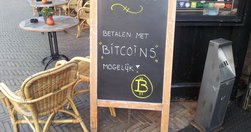
Even if you're not in the slightest bit interested in bitcoin or blockchains, you should read this, as it first explains why the Internet enabled innovation through "the abstraction of a separate “application layer.” Core Internet protocols - the “transport layer” - shuffle packets of data around, but they don’t define how the exchange of packets …
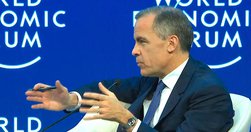
"banks and bank regulators don't seem to be aware of how much danger they're in, or how fast tech is moving to destroy traditional financial services" - TransferWise, Mark Carney, And 'Uber-Type Situation' In Banking - Business Insider

"Get ready for companies that run themselves. But will the autonomous economy set us all free, or just make the rich richer?" Good intro, setting companies like etherum into a wider context and using a hypothetical example to show how a DAO could emerge and propagate. And then it sets alarm bells ringing. "the true economic significance of autom…

"At the moment, it seems to be fashionable for venture capitalists and tech journalists to say “I love the blockchain, just not bitcoin.” There are a few things that people that make this claim completely ignore: The blockchain does not work without bitcoin" - The Blockchain is Important and so is Bitcoin — Medium

"ADEPT ... Autonomous Decentralized Peer-to-Peer Telemetry ... taps blockchains to provide the backbone of the system... IBM and Samsung chose three protocols – BitTorrent (file sharing), Ethereum (smart contracts) and TeleHash (peer-to-peer messaging) – to underpin ADEPT... blockchains deployed within the ADEPT system would serve as a ledger of…
" “[Currency] is not the killer app, it’s just the first app.”... “The potential to greatly reduce or even eliminate the need for litigation and courts ... smart contracts ... in principle removes the potential for parties to have a dispute..."
"My hunch is that The Blockchain will be to banking, law and accountancy as The Internet was to media, commerce and advertising. It will lower costs, disintermediate many layers of business and reduce friction. As we know, one person’s friction is another person’s revenue." Good tour of similarities and differences between today's early-Bitcoun a…

"the blockchain is all about replacing the servers that power today’s online world with computing power and storage that we all share.... Every network requires ... a “single source of truth” — the authority that says, “this is real,”... we have depended on servers run by corporations and governments... The blockchain turns the entire network in…
"If you're interested in learning more about the technical operation of bitcoin, or if you're building the next great bitcoin killerapp or business, you will find this book essential reading." Based on the ToC, covers blockchains and the rest. Readable online for free.

"So for the uninitiated who have not yet grasped what Bitcoin and other cryptocurrencies are, you ought to catch up. This is not something that should be ignored and there is a vast array of resources that explain the concept. In this post I’ll try to make sense of the Block Chain Protocol and the emerging ecosystem that is growing on it." - Bloc…
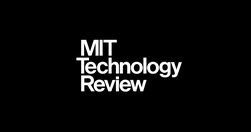
"Blockstream is working on technology ... to secure other kinds of assets, such as contracts or ownership of stock.... building on top of it using what are known as “sidechains.”... Blockstream has developed a way to safely move bitcoins back and forth between the blockchain and sidechains in order to add new functionality to Bitcoin transactions…

"a smart contract is a contract that enforces itself. ... a computer program that can be run on hardware which automatically executes those conditions." Good intro to what can - and can't - happen once you have bitcoins. - DAOs Are Not Scary, Part 1: Self-Enforcing Contracts And Factum Law – Bitcoin Magazine
An interview with Jim Bankoff, who just raised another raised $46.5 million in funding for Vox Media ("the fastest growing Web brand of 2014"), caught my eye.
Does what it says on the box.
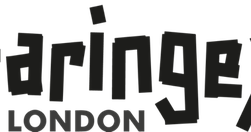
"The core innovation of Bitcoin is not going away, and it is deeper than currency. What has been introduced to the world is a method to create decentralised peer-validated time-stamped ledgers. That is a fancy way of saying it is a method for bypassing the use of centralised officials in recording stuff. Such officials are pervasive in society..…

"even if we still need human beings to perform certain specialized tasks, can we remove the management from the equation instead?... ... encode the mission statement into code... an inviolable contract that generates revenue, pays people to perform some function, and finds hardware for itself to run on, all without any need for top-down human di…

"We made the transition from dark web to daylight, venture capitalists started their stampede into digital currency businesses, governments worldwide gave the industry’s start-ups tacit approval, A+ executives joined the fray to build more of Bitcoin’s core infrastructure, we collectively answered some of the critics’ most pressing questions ... a…

"Ethereum is a platform and a programming language that makes it possible for any developer to build and publish next-generation distributed applications.... Ethereum can be used to codify, decentralize, secure and trade just about anything: voting, domain names, financial exchanges, crowdfunding, company governance, contracts and agreements of …
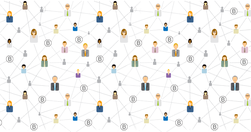
"The diagram below is an early concept illustration of the Independent Digital Music Market which now forms the basis of the Bittunes platform & Android application currently in Open Beta in the Bittunes Google+ community. This project, which had been put on ice in late 2006, was restarted in April 2013 when Bitcoin began to ‘cross the chasm’,"
"From Bitcoin Blockchain technologies to advances in mesh networks connecting devices together to create new people powered communication systems... to new understandings of 'emergent semantics' processes at work in folksonomies and massive user generated data sets powering new forms of search and discovery systems... 'Edge Principles' are driving…
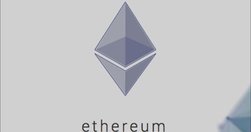
The mind boggles ... "perhaps the creepiest outgrowth of cryptocurrency 2.0: distributed autonomous organizations, or DAOs. Based on charters taking the form of code on a peer-to-peer network, these are entities that could automate many of the tasks of a conventional organization with varying levels of human input. For instance, a DAO could act d…